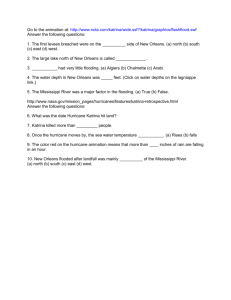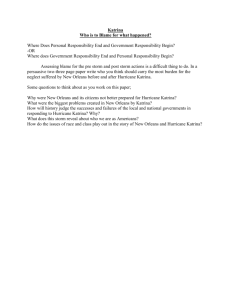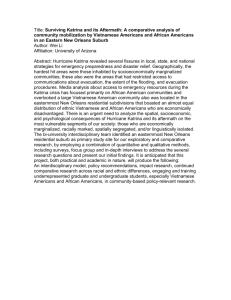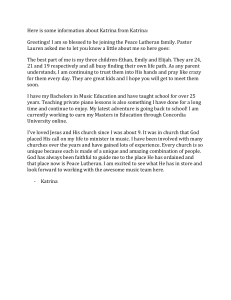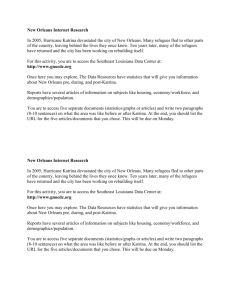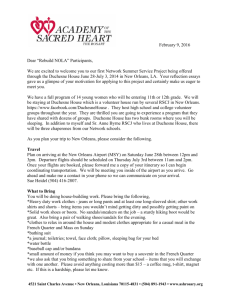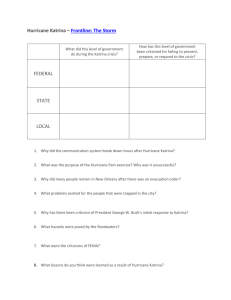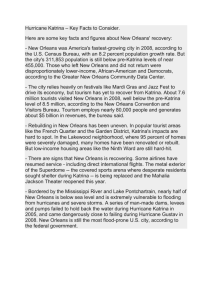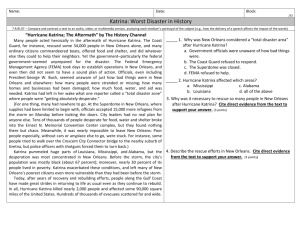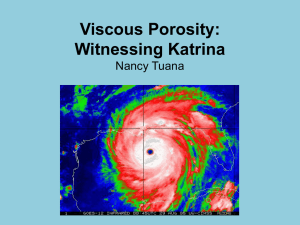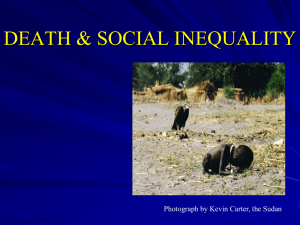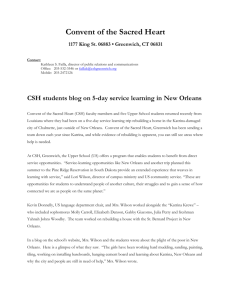Katrina_Gravy_EPISODE_RUNDOWN
advertisement
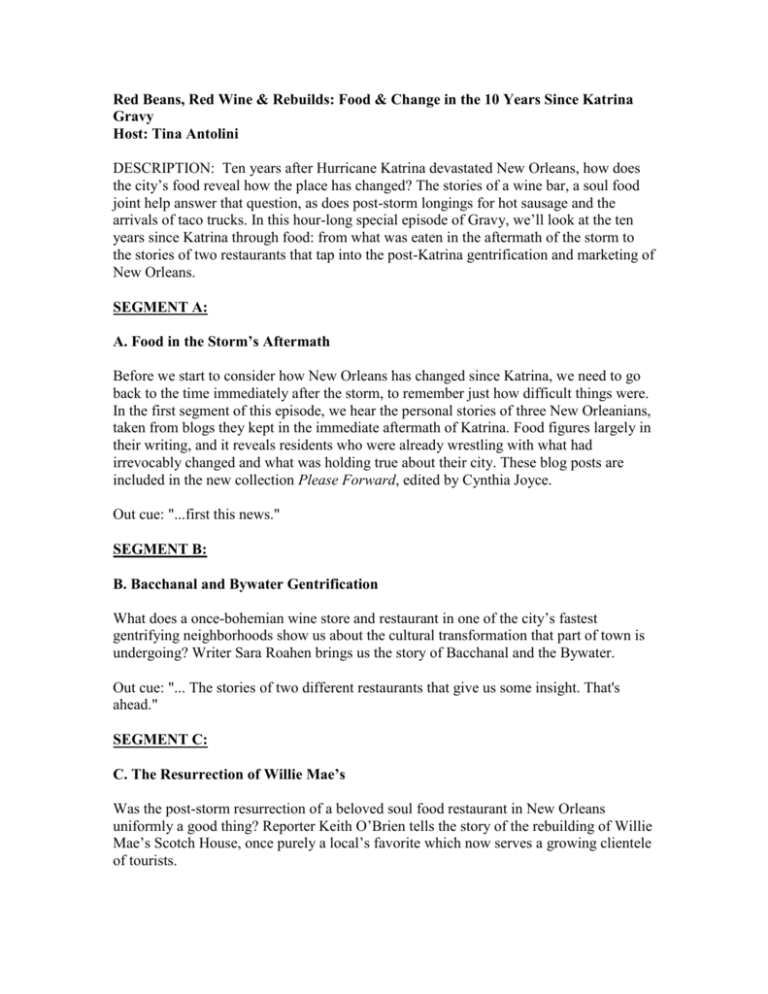
Red Beans, Red Wine & Rebuilds: Food & Change in the 10 Years Since Katrina Gravy Host: Tina Antolini DESCRIPTION: Ten years after Hurricane Katrina devastated New Orleans, how does the city’s food reveal how the place has changed? The stories of a wine bar, a soul food joint help answer that question, as does post-storm longings for hot sausage and the arrivals of taco trucks. In this hour-long special episode of Gravy, we’ll look at the ten years since Katrina through food: from what was eaten in the aftermath of the storm to the stories of two restaurants that tap into the post-Katrina gentrification and marketing of New Orleans. SEGMENT A: A. Food in the Storm’s Aftermath Before we start to consider how New Orleans has changed since Katrina, we need to go back to the time immediately after the storm, to remember just how difficult things were. In the first segment of this episode, we hear the personal stories of three New Orleanians, taken from blogs they kept in the immediate aftermath of Katrina. Food figures largely in their writing, and it reveals residents who were already wrestling with what had irrevocably changed and what was holding true about their city. These blog posts are included in the new collection Please Forward, edited by Cynthia Joyce. Out cue: "...first this news." SEGMENT B: B. Bacchanal and Bywater Gentrification What does a once-bohemian wine store and restaurant in one of the city’s fastest gentrifying neighborhoods show us about the cultural transformation that part of town is undergoing? Writer Sara Roahen brings us the story of Bacchanal and the Bywater. Out cue: "... The stories of two different restaurants that give us some insight. That's ahead." SEGMENT C: C. The Resurrection of Willie Mae’s Was the post-storm resurrection of a beloved soul food restaurant in New Orleans uniformly a good thing? Reporter Keith O’Brien tells the story of the rebuilding of Willie Mae’s Scotch House, once purely a local’s favorite which now serves a growing clientele of tourists. Out cue: "... And as you go about your daily life, please remember: make cornbread, not war."
